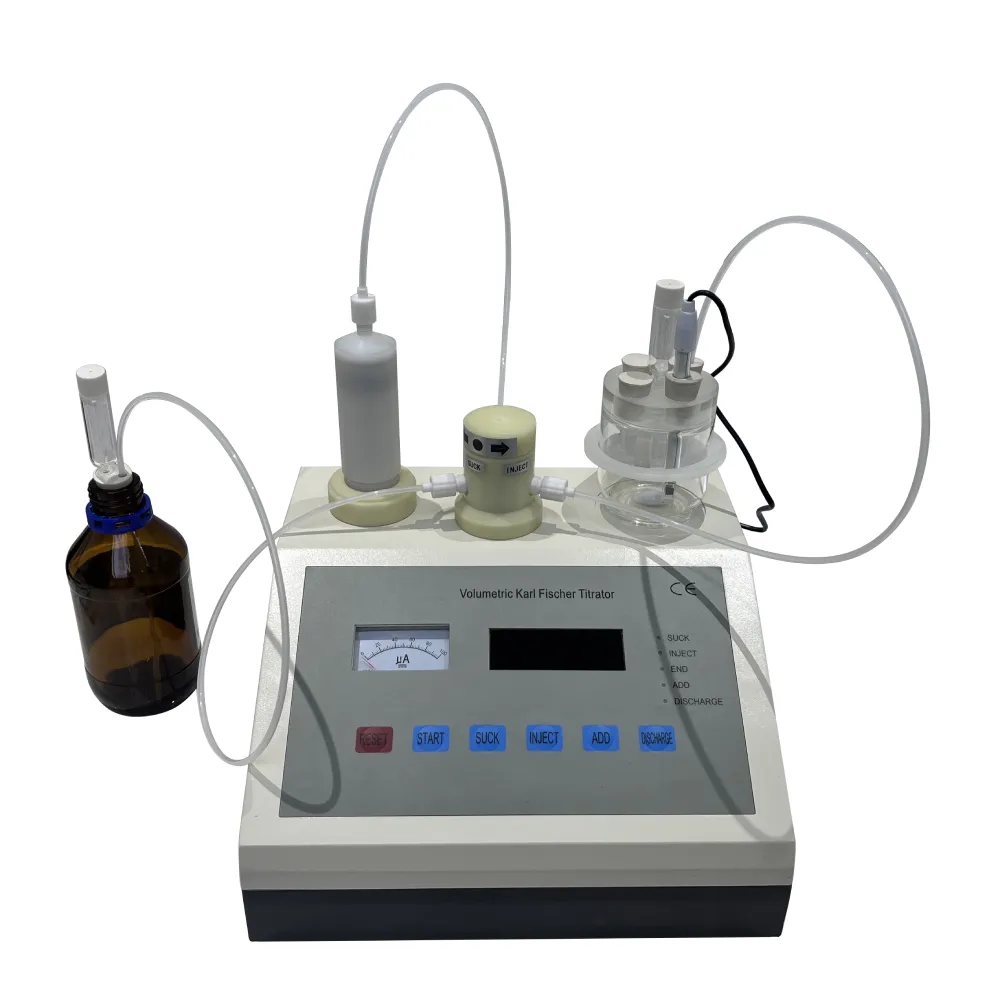 English
English


Exploring the Applications of Potentiometric Techniques in Analyzing Chemical Properties and Solutions
The Potentiometric Method Principles and Applications
The potentiometric method is a widely used analytical technique that measures the electric potential of an ion-selective electrode or electrode system in a solution. It plays a crucial role in various fields including chemistry, biology, environmental science, and food safety. This article delves into the principles behind potentiometry, its applications, and its significance in analytical chemistry.
Principles of Potentiometry
At its core, potentiometry is based on the Nernst equation, which correlates the electrode potential to the concentration of ions in solution. An ion-selective electrode (ISE) is central to this method, which is designed to respond selectively to a specific ion while excluding others. When immersed in a solution, the ISE develops a potential that is related to the logarithm of the ion's activity.
The basic setup of a potentiometric measurement includes the ion-selective electrode, a reference electrode, and a voltmeter to display the voltage. The reference electrode provides a stable reference potential, allowing precise measurement of the potential difference between the ion-selective electrode and the solution. As the concentration of the target ion changes, so does the voltage reading, which can then be correlated to concentration using calibration curves.
Applications of the Potentiometric Method
The versatility of the potentiometric method allows its application in various domains
1. Environmental Monitoring Potentiometry is extensively used for monitoring the quality of water. For instance, measuring pH, nitrate, and heavy metal concentrations in water bodies helps in assessing pollution levels and maintaining environmental health.
potentiometric method

2. Clinical Diagnostics In medical laboratories, potentiometric measurements are employed to determine ion concentrations in bodily fluids. Potassium and sodium levels are crucial indicators of health, particularly in patients with kidney disorders or those on diuretics.
3. Food and Beverage Testing The food industry utilizes potentiometric methods for quality control. Monitoring acidity (pH) and ensuring appropriate levels of certain ions can affect flavor, preservation, and safety of food products.
4. Industrial Applications The method is also applicable in the chemical industry for titration processes and monitoring manufacturing processes that require precise ion concentration measurements.
Advantages of Potentiometry
One of the primary advantages of the potentiometric method is its high specificity and sensitivity towards different ions. Ion-selective electrodes can be designed to target specific ions, providing accurate measurements even in complex matrices. Additionally, potentiometry requires minimal sample preparation compared to other analytical techniques, making it a convenient choice for rapid testing.
Moreover, potentiometry is generally cost-effective and allows for continuous monitoring, which is beneficial in industrial and environmental applications. With advancements in technology, portable potentiometric devices are becoming increasingly available, facilitating field analyses and real-time data collection.
Conclusion
In summary, the potentiometric method is a powerful and versatile analytical technique that offers valuable insights across numerous fields. Its principles rooted in electrochemistry enable precise measurements of ion concentrations, greatly contributing to environmental safety, clinical diagnostics, food quality, and industrial processes. As technology evolves, the application of potentiometry is expected to expand, further enhancing its role in scientific research and everyday monitoring. The continued development of ion-selective electrodes and portable devices promises to make potentiometric measurements more accessible, paving the way for more informed decision-making in both professional and everyday contexts.
-
Differences between open cup flash point tester and closed cup flash point testerNewsOct.31,2024
-
The Reliable Load Tap ChangerNewsOct.23,2024
-
The Essential Guide to Hipot TestersNewsOct.23,2024
-
The Digital Insulation TesterNewsOct.23,2024
-
The Best Earth Loop Impedance Tester for SaleNewsOct.23,2024
-
Tan Delta Tester--The Essential Tool for Electrical Insulation TestingNewsOct.23,2024





